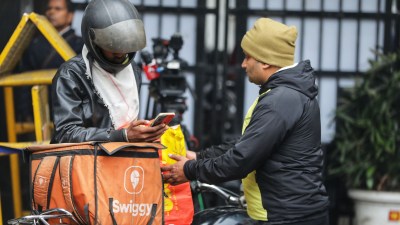The Sheffield Bomber
An impressive debut novel maps the journey of a young man,from drifter to terrorist
His are the streets of Sheffield. Imtiaz Ali,son of a Pakistani immigrant taxi driver,has grown up here,fallen in love with an English girl and brought her home; even the lilt of this Yorkshire town is in his language. But he is not sure-footed on these roads anymore; he does not just stumble over why he felt fine rooting for Liverpool,in a quiet way,and not England why he felt himself defending Muslims against whites and whites against Muslims that is angst from a more innocent time,when he hadnt gone all fundamental.
Instead,he watches the city at night from his Abbas room Everyone sleeping contentedly. So indifferent to the crimes of their land.,all the while waiting for his turn to be a martyr.
What makes a man a terrorist? In Mohsin Hamids The Reluctant Fundamentalist,Changez sat across a table from an American,and told him of the involuntary smile that flitted across his face as he watched the twin towers crumble. That was a novel of cunning,a monologue addressed to Americas anger and guilt,and which insisted on a complicated answer to that question. Though the publishers ask you to believe that Ours are the Streets is the story behind the news story,Sunjeev Sahotas first novel is concerned less with the grand narrative of radicalisation than with the gradual,tortuous unravelling of one mans mind both the novels strength and weakness.
The novel is in the form of Imtiazs diary,his attempt to explain himself to his wife Rebekah,and his baby Noor,a form of dua. Wanting to be found out,which is only another way of wanting to be known and one of the triumphs of the novel is how well Suhota gets Imtiazs voice. Suhota seems to suggest that Imtiaz is concerned only cursorily with the crimes of the land of his birth in a different continent. His alienation was born earlier,from watching his Ammi and Abba try and fail to claim the streets of Shef as their own; from the continuous wariness and sense of siege that mark their encounters with the outside world; and his shame at their inability to fit in or stand up to the aggression. The way all his adult strength is made to just crumble by a few well-placed words,and all you can do is gaze helplessly at him with a kind of horror,as if youre watching a tower collapsing, says Imtiaz of his father.
When his father dies of a heart attack while chasing a fare-dodger,Imtiaz travels to Pakistan to bury him,and watches for the first time his mother deal with a bullying airport official with confidence. At his ancestral home,he finds strength and comfort in a communal identity,something to plug the hole of his rootlessness. He drifts into the company of a young man,Aqeel,who taunts him as a valetiya but takes him to camps in Kashmir and Afghanistan,where he agrees to be part of a suicide mission in England. He returns to Sheffield as a man transformed,unrecognisable to his wife.
Suhota writes with sympathy and insight of the cultural short-circuiting in multi-culti England,and how it slowly burns its way into young disaffected minds. But the reader remains in the dark about the novels tipping point. Imtiaz,the drifter,is a confused mixture of anger,loss and frustration,but does not add up to Imtiaz,the suicide bomber.
What makes a man a terrorist? Ours are the Streets doesnt have a satisfactory answer. But it succeeds because of Imtiaz,a character that leaps off the pages,and makes you care,and mourn,the waste of his life.
- 01
- 02
- 03
- 04
- 05































